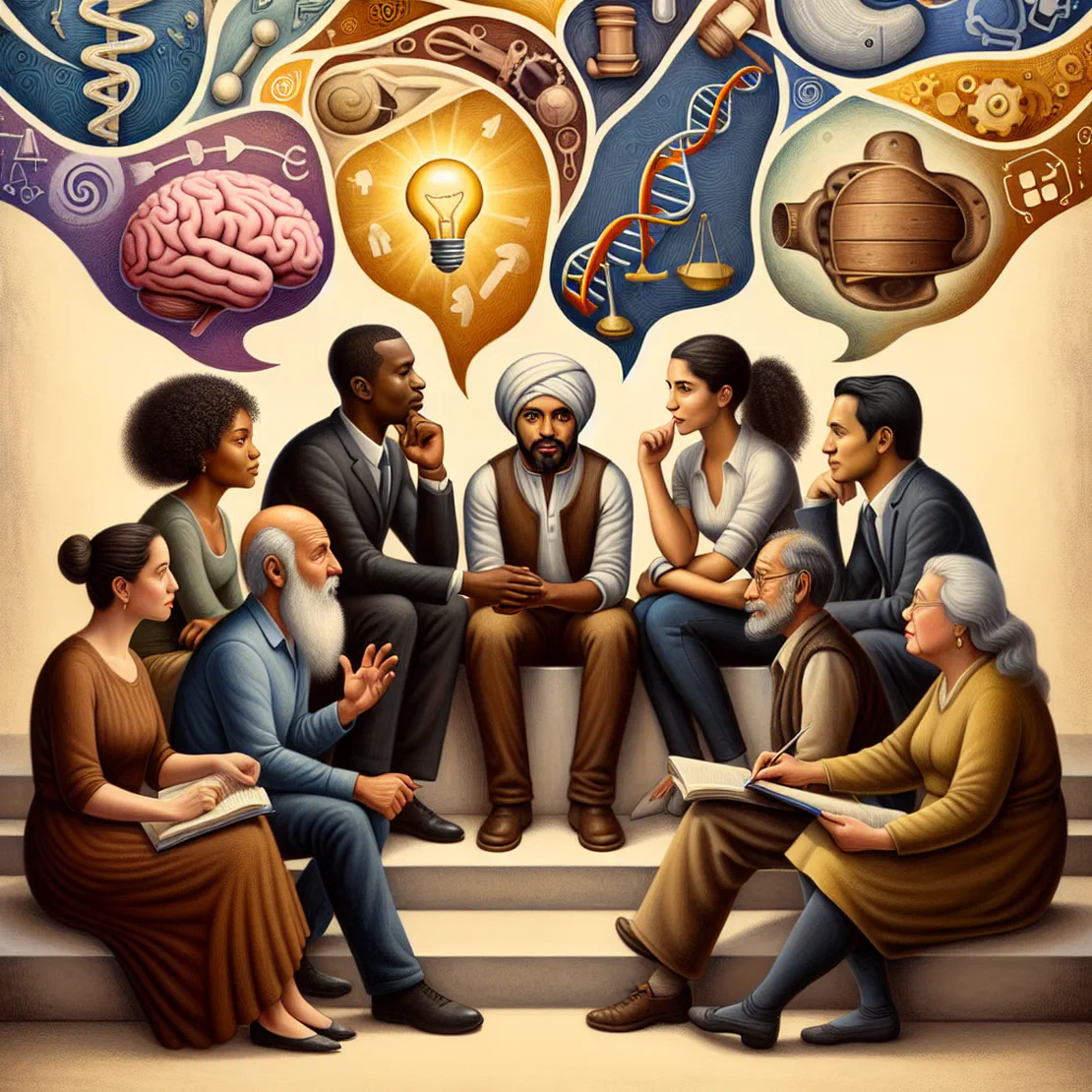
485. The Rebirth of God: Pathology and Promise | Jamie Wheal
- The Jordan B. Peterson Podcast
- Please provide the text you would like me to analyze.
- September 30, 2024
Table of Contents
At a Glance
-
Exploration of Human Suffering and Redemption - ’the hero myth that’s laid out in the passion story has, as part of its structure the insistence that there’s nothing that’s more transformative than the willingness to embrace the full horror of life’ - This point is significant as it delves into the deep philosophical and theological underpinnings of human suffering and its transformative power, a core aspect of the discussion.
-
Nature of Science and Philosophy - ‘is it that our science will finally catch up to our philosophy and theology, or is it that we write convenient just-so stories to explain what is actually being dictated at a more primal-based level beyond our ken’ - This quote is pivotal as it questions the relationship and progression between science and philosophy, highlighting a critical introspection on human understanding.
-
Role of Play and Social Development - ‘Play is arguably just the ability to make mistakes without fear. That’s what all animals do, all mammals do, wolves do it, kids do it’ - This observation is important because it touches on the inherent nature of learning and development through play, which is a fundamental aspect of both human and animal behavior.
-
Concept of Logos in Conversation - ‘That’s a Logos-centered conversation. So you know that…Emergent Logos lies in truth in words’ - This is a profound point because it brings out the philosophical concept of Logos, or the principle of order and knowledge, as a critical element in meaningful conversations.
-
Impact of Social Media on Communication - ’the interesting way, this was one of Keith Sawyer’s students, but they then went to prove that, you know, let’s say the autotelic nature, the self-driving motivational nature of these things’ - The quote is notable as it discusses the influence and dynamics of social media interactions, reflecting on modern communication challenges and opportunities.
-
Integration of Adventure and Responsibility - ‘God tells Abraham that if he abides faithfully by the spirit of adventure, and he makes the sacrifices necessary to transform himself in that endeavor’ - This part of the conversation highlights the balance between adventure and responsibility, drawing from religious narratives to discuss personal and spiritual growth.
-
Humorous Observation on Event Attendance - ‘Is this double-scheduled with prom? Is graduation happening? I literally had that vibe’ - This brings a light-hearted moment to the discussion, reflecting on the speaker’s surprise and humorous confusion at the large turnout and formal attire at an event.
These highlights encapsulate the blend of deep philosophical inquiry, practical insights on human behavior, and lighter moments, providing a comprehensive overview of the conversation’s richness and depth.
What to Do
-
Embrace truthful and honest communication - It leads to healing and redemptive experiences, as highlighted by Carl Rogers and Freud’s psychotherapeutic principles.
-
Co-create in group activities - Engaging collectively is more rewarding and has neurophysiological correlates that can enhance performance and satisfaction.
-
Engage with those who hold different views - Conversing with someone who has opposing views but engages honestly can offer the most significant insights and learning opportunities.
-
Value iterated play and fairness - Regular, voluntary play fosters an implicit moral order and teaches crucial social behaviors, emphasizing fairness and mutual respect.
-
Explore and embrace challenges - Facing life’s difficulties head-on is crucial for growth and adaptation, echoing the passion story’s narrative of transformation through embracing suffering.
-
Engage in fair and challenging games - Opting for balanced challenges over easy victories promotes skill expansion and satisfaction, aligning with natural motivations beyond mere power acquisition.
-
Foster empathy and guard against manipulation - Being empathetic is essential, but one must be cautious of those who might exploit this trait for manipulative purposes.
-
Encourage voluntary and engaged participation in discussions - Ensuring all participants in a conversation or seminar are genuinely engaged and not dominating can lead to more fruitful and inclusive discussions.
What to Get
-
The Great Mother: An Analysis of the Archetype by Erich Neumann - Amazon - Study of the symbolism of chaos.
-
The Origins and History of Consciousness by Eric Neumann - Amazon - Elaboration of the hero myth.
-
Notes from Underground by Fyodor Dostoevsky - Amazon - Critique of socialism expressed through literature.
-
A Billion Wicked Thoughts by Ogi Ogas and Sai Gaddam - Amazon - Analysis of human sexual behavior through internet data.
-
Dopaminergic System Studies - Research related to reward systems in the brain, involving concepts of novelty seeking and exploratory behavior.
-
Studies on MRIs with jazz musicians by Charles Lim - Investigating the neurophysiological correlates of creativity and group dynamics.
Summary
In this podcast episode, the conversation delves deep into the dynamics of effective communication, the psychological impact of group activities, and the profound effects of engaging in honest and challenging discussions. The speakers explore the concept of “Emergent Logos,” which refers to the meaningful outcomes that arise when individuals engage in truthful and focused dialogue. This idea is rooted in the belief that such conversations can be redemptive and healing, drawing on the work of Carl Rogers and Freud, who emphasized the therapeutic value of open communication aimed at improvement.
The discussion also touches on the fascinating work of researchers like Charles Lim and Keith Sawyer, who have studied the neurological and psychological phenomena that occur during group activities such as playing jazz or participating in sports. These studies highlight the emergence of “group flow,” where the collective creativity and performance exceed what any individual could achieve alone. This point is vividly illustrated with examples like jazz musicians and sports teams, where the sum of the group’s performance is greater than its parts.
An intriguing part of the conversation examines the psychological rewards of collaborative efforts versus solitary endeavors. It suggests that working with others not only enhances the outcome but also triples the psychological rewards, emphasizing the human need for connection and co-creation.
The episode also explores more profound philosophical and ethical discussions, touching on the need to engage with and understand those who hold opposing views. This engagement is seen as a pathway to greater personal and communal growth, as it challenges individuals to expand their perspectives and embrace a broader range of human experiences.
Additionally, the conversation shifts to a broader cultural and societal analysis, discussing the resurgence of interest in traditional religious practices and how this reflects broader trends in seeking meaning and community in increasingly fragmented modern societies. The speakers discuss the implications of these shifts for social cohesion and the individual search for meaning in a complex world.
Overall, the podcast episode offers a rich exploration of the psychological, social, and ethical dimensions of human interaction and communication, providing insights into how engaging deeply with others can lead to greater understanding, creativity, and fulfillment.


